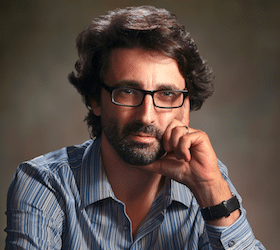
Peter Harrison is Professor Emeritus of History and Philosophy at the University of Queensland, and for a number of years was the Idreos Professor of Science and Religion at the University of Oxford. He is the author of several books on the history of science and religion including The Territories of Science and Religion (Chicago, 2015), based on his Gifford Lectures. His forthcoming book, Some New World: Myths of Supernatural Belief in a Secular Age, deals with the historical emergence of modern naturalism and will be published by Cambridge University Press in 2024.
“Parallels between Scientific and Religious Pluralism: Lessons from History”
The question of the status of indigenous forms of knowledge and their relation to the universal claims of Western science has become increasingly pressing in recent decades. The fact that the question is now posed in terms of the scientific status of indigenous world views represents a significant historical shift. In past centuries the equivalent question concerned the religious or salvific status of non-Western worldviews and their relation to the universal claims of Christianity. The changed emphasis is owing, no doubt, to secularization, but there are important similarities between the two forms of the question. In this lecture I draw attention to some of these parallels and their implications. These go, first, to the history of the respective categories ‘religion’ and ‘science’ and, second, to the fact that claims for the universality of Christianity rested in part on providentialist readings of its historical development. This raises the question of whether the claims to universality of Western science now rest upon similar, albeit tacit, assumptions of a providentially guided or teleological history.

Roman Frigg is Professor of Philosophy in the Department of Philosophy, Logic and Scientific Method at the London School of Economics and Political Science, UK. He is the winner of the Friedrich Wilhelm Bessel Research Award of the Alexander von Humboldt Foundation. His research interests lie in general philosophy of science and philosophy of physics.
”Representation without Representationalism”
An understanding of science that sees science as producing representations of parts or aspects of the world has been criticised as being committed to representationalism, which is then dismissed as an untenable position. I analyse this claim and point out that scientific representation does not imply a commitment to representationalism. Indeed, an understanding of science as an endeavour aimed at producing representations is compatible anti-representationalism, as well as with epistemic diversity and pluralism.

Lijing Jiang is an assistant professor at the Department of History of Science and Technology, the Johns Hopkins University. She is a historian of the modern life sciences, often probing questions regarding how epistemic and cultural interpretations and material manipulations of organisms or objects shaped varied processes of knowledge production in biology and biotechnology. Her monograph in progress is currently titled The Entangled Model Fish: Nations, Environments, and Ornamental Fish as Experimental Animals. It examines how ornamental fish became crucial experimental animals for the life sciences and with deep relations to aquacultural industry and changing global politics, especially in China and Japan, before the rise of the zebrafish in the twentieth century.
“Global Narratives and Local Entanglements of Three Laboratory Fish”
With the development of large-scale mutant screening method, the zebrafish took its leap in the 1990s and became the teleost model for vertebrate development in the early 2000s. Today, however, all three fish have been crowned with the title of model organism, with dedicated reviews, monographs, and genome projects. This talk compares the making of three model fish before the genomic age with vignettes of their uses and representations between the 1910s and 1980s in China, Japan, and the United States. I challenge the notion that model organisms are standardized species colonies that make knowledge in a globally uniform way. They also do not have to be always about basic biological problems or human diseases. Goldfish, for example, were envisioned to give biology’s advancement in China a special leverage, as well as to offer a test subject to boost fish farming of the nation. Medaka, on the other hand, enjoyed much attention regarding its sexual response to environmental changes in Japan as hormonal manipulation and radiation machines, along with environmental concerns, entered the laboratory after the 1950s. In comparison, George Streisinger’s effort in developing zebrafish in the 1970s for the interest of a small group of molecular biologists appeared quite local and confined, even if its story eventually became dominant and helped to erase tales of other fish models in the long twentieth century of global life sciences.

Anya Plutynski is a Professor of Philosophy at Washington University in St. Louis. She is a historian and philosopher of biology and medicine. Her most recent book is Explaining Cancer: Finding Order in Disorder (2018, OUP). She has also written on the history and philosophy of evolutionary biology and genetics, the role of modeling in science, and scientific explanation. Other research interests include biomedical research ethics, particularly issues surrounding precision oncology, cancer genomics, and risk communication. Her current research is on the history of the cancer genome atlas project (TCGA) and the development of precision oncology.
“Is the p-Factor a Unifying Measure of Psychopathology?”